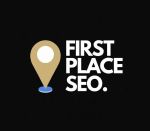Do tags on Shopify help with SEO?
Yes, tags on Shopify contribute to better search engine optimisation but not through direct ranking signals. Instead, they play a supporting role by improving site architecture, user experience, and internal linking which are all considered by search engines when evaluating content relevance and authority. By displaying meaningful product tags, organising items effectively, and supporting filtered navigation, store owners create clearer pathways for both search engine crawlers and customers. This indirect influence helps boost visibility over time through improved crawlability, reduced bounce rates, and better topical grouping.
Here's What We Have Covered In This Article
What are Shopify tags and how do they work?
Shopify tags are label attributes applied to products, blog posts, customer profiles, or orders. They are primarily used to group items within the admin interface, create automated collections, and refine product filtering. Product tags serve as semantic signals when displayed on the front end and support long tail keyword optimisation. For example, a product tagged with “organic cotton”, “UK made”, and “summer wear” tells both users and crawlers what the item is about beyond its title.
Which types of tags exist in Shopify?
Product tags
Product tags identify specific attributes such as fabric type, occasion, or fit. They assist with collection automation and filtering which makes it easier for customers to navigate categories. These tags can also support search engine signals when they appear on visible pages.
Blog post tags
Blog tags categorise content by topic. They help connect related articles which supports semantic relevance across your site. When optimised, these categories improve internal link structure and topical clustering.
Customer and order tags
These internal tags help segment users for email marketing or workflow automation. They do not influence SEO directly but can support operational efficiency.
Do Shopify tags improve SEO performance?
Not directly. Shopify tags are not recognised by Google as ranking factors unless they are surfaced on pages visible to search engine bots. When exposed properly and included in relevant HTML elements such as headings or links, they help structure your site more logically which indirectly contributes to SEO. Google rewards clear structure, user satisfaction, and topical authority. Tags provide useful signals that support these metrics when used properly.
Are tags visible to search engines?
Only if they are present in your theme’s front end code. Tags hidden within the Shopify admin do not impact visibility. You can use Liquid code to place tags under product descriptions or within sidebar filters. When indexed, tag-based collections such as “/collections/organic-cotton” become crawlable URLs which can rank for niche terms if supported with content.
How can product tags help with on-page SEO?
Integrating tags into product descriptions
Tags reflecting search intent keywords such as “eco friendly material” or “suitable for sensitive skin” enhance semantic richness within descriptions. This natural keyword integration improves alignment with voice search and long tail queries.
Creating metadata inspired by product tags
Relevant tags can help shape meta titles and descriptions. For example, a product tagged “handmade ceramic mug” might use that phrase as part of its meta title. This improves match rate with query strings and supports click-through rate from search results.
Tag-based URL structures
You can build dedicated filtered collections by using tag-based URLs. These can rank well when backed by unique content and keyword focused headings. For guidance on setting up clean and indexable URLs, you can explore Shopify’s SEO best practices.
Do product tags help improve user experience?
Yes, particularly when they support filtering, sorting, and product discovery. Visitors are more likely to stay on your site when they find what they want quickly. Tags such as “under £50”, “cruelty free”, or “next day delivery” help refine choices.
Can tags reduce bounce rate and increase engagement?
A structured tag system improves internal linking between related products. If a visitor lands on a t-shirt product page, seeing clickable tags such as “100 percent cotton” or “slim fit” lets them explore further. This encourages more page views per session and signals positive user experience to search engines.
Are Shopify tags a ranking factor?
No. Google does not rank pages based on tags alone. However, tags influence how information is grouped and linked within your site. This improves topical depth and supports content discovery which helps search engines understand your site better.
How should Shopify tags be used for best SEO results?
Use keyword-rich and descriptive tags
Choose terms that match search intent. For example, if you sell children’s clothing, tags like “boys waterproof jacket” or “school uniform trousers” perform better than “kids wear”.
Incorporate long tail keyword variants
Tags that reflect specific phrases used in queries improve searchability. These include phrases like “non stick baking tray” or “vegan leather handbag”.
Avoid overuse and clutter
Too many tags on a product cause confusion and dilute keyword focus. Stick to a few well chosen labels that reflect buyer search behaviour.
Should tags be visible on product pages?
Yes, when possible. Use Liquid code to display tags underneath the product description. Visible tags create internal links and offer context to both crawlers and users. These links guide users to related products grouped under the same label, improving navigation.
How do tags contribute to site structure?
Tags support hierarchy by grouping related products under shared attributes. Collections based on tags create themed landing pages that contribute to your website’s topical authority. These can also be optimised with unique headings and keyword focused content.





